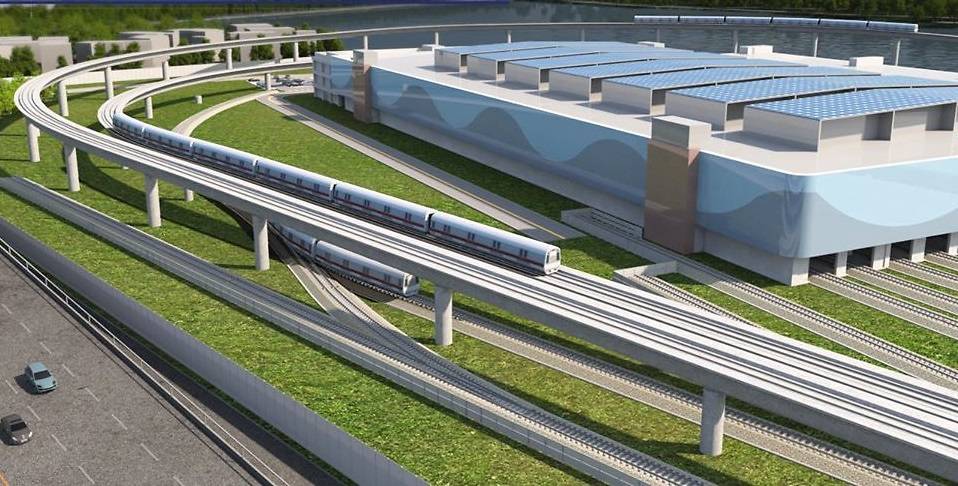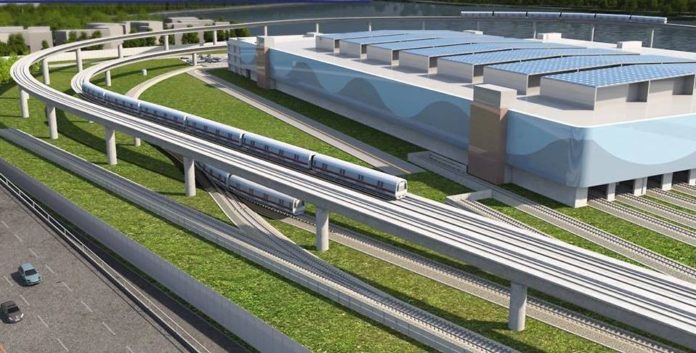SINGAPORE: GS Engineering has been awarded a contract to design and construct the flagship Integrated Train Testing Centre (ITTC) at the former Raffles Country Club site, the Land Transport Authority (LTA) said on Friday (Apr 17).
The $639.5 million contract for the ITTC was warded to GS Engineering, a South Korea based construction company that has previously designed and constructed MRT stations and depots in Singapore.
It is expected to be fully operational by end-2024.
GS Engineering is currently constructing the East Coast integrated four-in-one depot.
The company has also previously built the Downtown Line’s Gali Batu depot, Fort Canning station, Tampines East station, as well as the Thomson-East Coast Line’s Woodlands station.
The ITTC, which is the first of its kind in Southeast Asia, will be equipped to test rail systems around the clock without disrupting passenger services.
“This is more efficient and frees up limited engineering hours on the existing lines for other activities such as maintenance and renewal works.
“When completed, the ITTC will be the cornerstone of Singapore’s strategy to sustain rail reliability and deepen core rail engineering capabilities,” LTA said.
Occupying about 50ha, the ITTC is located at the former Raffles Country Club site. Its design is modelled after similar testing centres in Germany, South Korea and Japan.
The ITTC will house an operations control centre, testing equipment and 11km of test tracks to support endurance, performance integration and high speed testing for new trains and supporting systems.
It is also equipped with a rolling stock workshop, stabling tracks and maintenance tracks to support major refurbishment of existing trains.

An artist impression of the Integrated Train Testing Centre at the former Raffles Country Club Site, which is expected to be fully operational by 2024. (Photo: Facebook/Land Transport Authority)
Transport Minister Khaw Boon Wan said in a Facebook post on Friday that “ensuring rail capability is a continuous endeavour”.
“We have stabilised our MRT operation but we must not be complacent,” he added.
The ITTC will serve as a hub for LTA and the local rail industry to deepen their capability in systems integration, operations and maintenance, LTA said.
“The local rail industry will be able to evaluate new railway infrastructure, develop proofs-of-concept, as well as conduct research and development into railway technologies, using the ITTC as a testing ground,” they added.
It would also speed up diagnoses and rectification of faults, as more troubleshooting can now be done locally.
Rail workers will also stand to benefit from the first-hand understanding of the intricacies of new rail systems before they are deployed.
The ITTC will begin operations in phases, with the first phase to open by end-2022 to receive new trains and systems for Circle Line phase 6.





